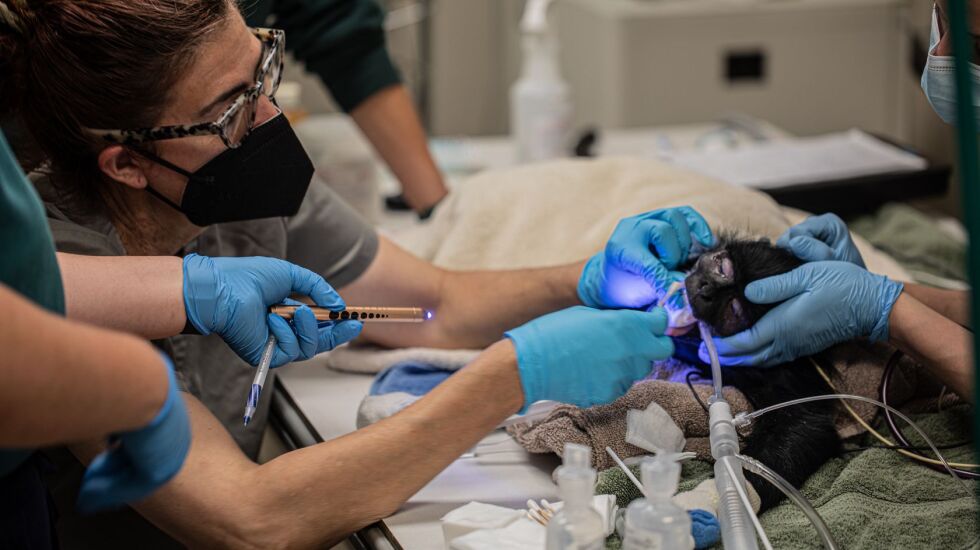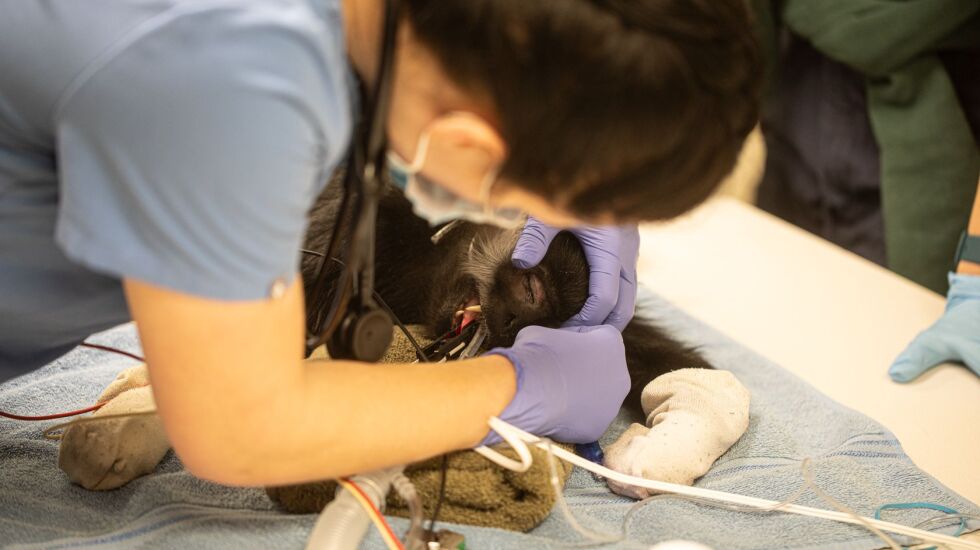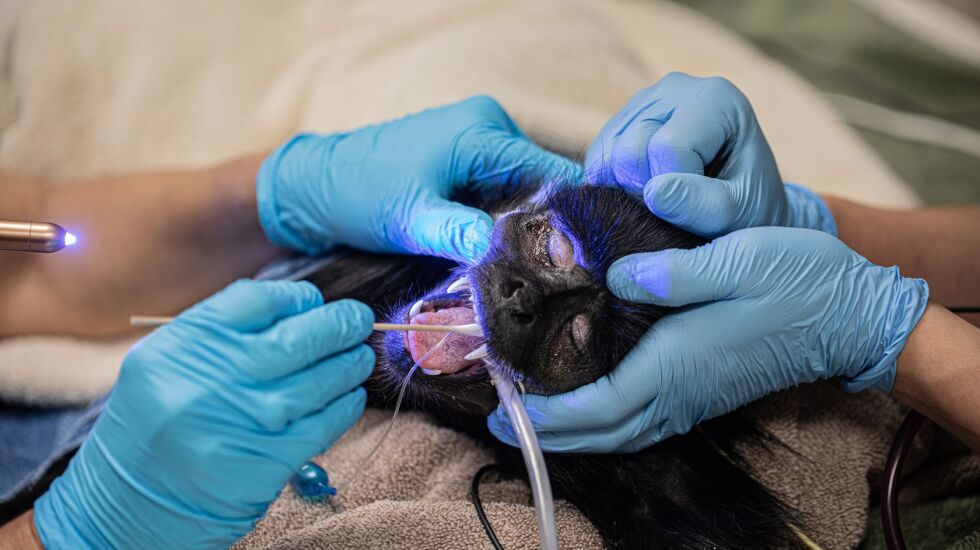
A Francois’ Langur from Lincoln Park Zoo has been declared cancer-free after undergoing surgery to remove a malignant tumor from the roof of his mouth.
The monkey’s recovery could have implications for the whole species and other surgeries that require animal hospitalization.
These types of primates are characterized by their long tails and orange fur at birth that turns to black with a white stripe as they grow into adults. Francois’ Langurs, which can be found in the wild from southwestern China to northeastern Vietnam, are an endangered species, according to the zoo.
In January 2022, during a routine health exam, Dr. Kathryn Gamble, director of veterinary medicine at the zoo, noticed the tumor in 10-year-old Zhang’s mouth.
“When I opened his mouth, I realized that the entire roof of his mouth was one giant cancer, and it occurred to me that I probably was seeing it at a much earlier stage than it had ever been seen before, because he had no outward signs,” she said. “He also appeared to everyone to be very healthy.”
Gamble and a veterinary resident discovered about 10 years ago that this species appears predisposed to a certain oral cancer, although it had never been identified early enough to take action. They informed a national program that manages and advises on the Francois’ Langur population in the U.S. and started looking for signs of the cancer during animal checkups.
She said his mouth “looked almost normal,” but because she was prepared for it, she was able to identify the cancer.

Gamble consulted with veterinarians and medical professionals, and contacted Dr. Kerstin Stenson, director of the head and neck cancer program at Rush University Medical Center. Stenson said her main concerns after examining Zhang were pain management, technical differences and whether the surgery would affect his social interactions.
“Anatomy is not exactly the same, but the landmarks are the same,” she said. “I didn’t think there’d be a lot of blood loss, but can a langur get a blood transfusion? You know, all of these different things that I would think about for a human and see how they applied to a langur.”
They scheduled the surgery for May 2022, and Gamble’s main concern then was how to explain surgery to a monkey — or at least, how to care for the postoperative langur.
While she obviously couldn’t communicate with Zhang, Gamble took a multi-step approach to manage his pain and reduce his anxiety. She said the success of this approach, involving a combination of three kinds of pain management, was one of the most exciting findings.
“We felt that we had done a most excellent job at not necessarily communicating to him, but preventing him from having any anxiety about anything more than being, ‘Why am I in the hospital?” she said.
Stenson said the surgery went smoothly.
“The surgery was technically feasible; there weren’t any immediate complications from the surgery, but the management of him afterwards was the most critical,” she said.
Within two hours of surgery, the langur was already eating, and after a week in the hospital, he returned to his family group.

To help Zhang recover, Gamble kept him under 24/7 care with keepers he knew and a vet on-duty at all times. Zhang spent much of the time resting, and Gamble said the keepers kept up with enrichment activities to keep him entertained when he was awake. She also allowed him up to two hours per day of cartoons or movies.
“Zhang really liked nature movies; he really liked birds,” she said. “He enjoyed that, and we also had the keepers would talk to him as well, again, trying to make it as much of a normal routine as possible.”
Zhang underwent a second surgery in May to encourage tissue regrowth, and on Friday, he was officially pronounced cancer-free.
Gamble said her approach to managing his pain has been one of the most significant results to share with the veterinary community.
“Sometimes we can get held back by, ‘Oh my gosh, we can’t communicate this to him, so is it appropriate to ask him to go through that discomfort?’ And I feel like the answer is yes,” she said.
The surgery’s success means with early detection, these langurs can be saved, she added.
“It could have been missed again if you weren’t looking for it. … If we do find it earlier, we can actually do something about it and preserve these animals,” she said.







